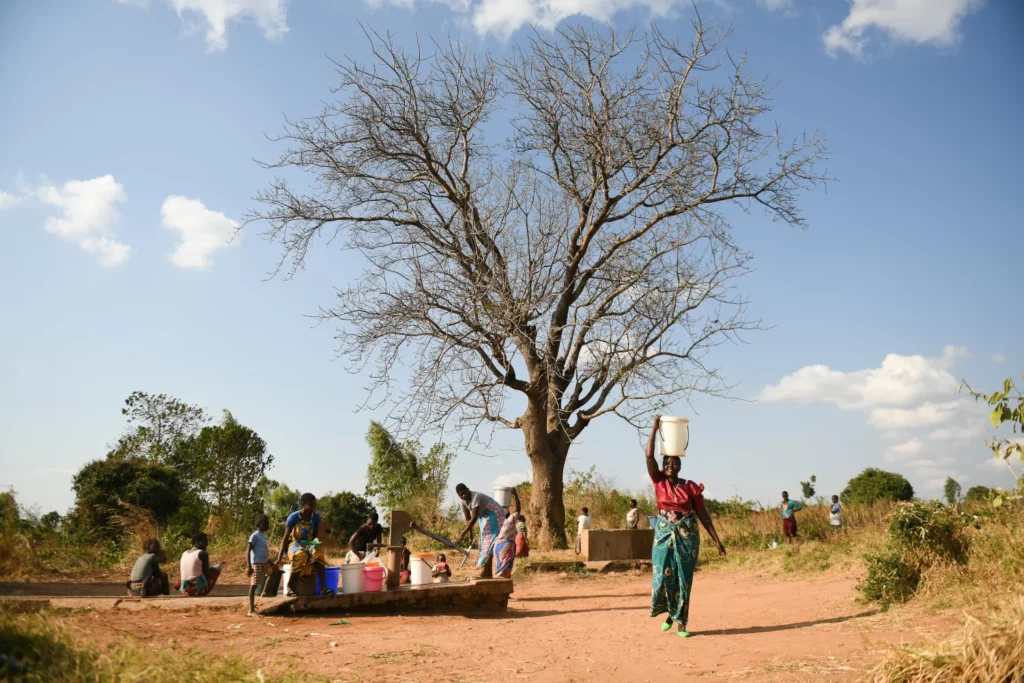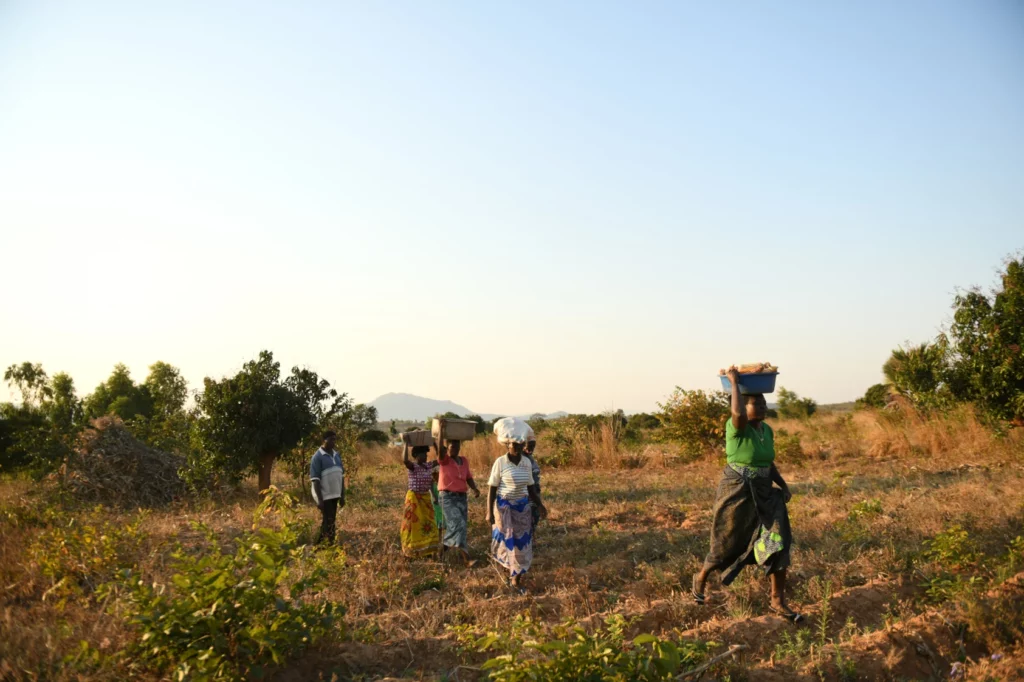There is an air of playful competition. Indeed, it is a competition. At the end of the afternoon the food is shared, and there are prizes for both the best-tasting food (the doughnuts win hands down) and the food most likely to be added to folks’ everyday diets (the porridge triumphs because although everyone likes deep-fried food, doughnuts are a pain to cook, and the oil is very expensive).
This is a Recipe Day in Bwabwa, a village of around 800 people in northern Malawi. These festivals are sociological experiments to reduce domestic inequality and are part of a multifaceted approach to ending hunger called agroecology. Academics describe it as a science, a practice and a social movement. Agroecology applies ecology and social science to the creation and management of sustainable food systems and involves 10 or more interconnected principles, ranging from the maintenance of soil health and biodiversity to the increase of gender and intergenerational equity. More than eight million farmer groups around the world are experimenting with it and finding that compared with conventional agriculture, agroecology is able to sequester more carbon in the soil, use water more frugally, reduce dependence on external inputs by recycling nutrients such as nitrogen and phosphorus, and promote, rather than ravage, biodiversity in the soil and on farms. And on every continent, research shows that farmers who adopt agroecology have greater food security, higher incomes, better health and lower levels of indebtedness.
Chitaya told me that at the turn of the millennium, when Bwabwa’s farmers were still practicing conventional agriculture, “there were times when we wouldn’t be able to eat for days. My first child was malnourished.” Now her oldest son, France, is a very healthy adolescent, helping teach other boys how to cook. The pediatric malnutrition clinic near Bwabwa has closed down for want of cases—though in Malawi as a whole, more than a third of the children younger than five years are stunted by malnutrition. Despite the COVID-19 pandemic, whose devastating economic effects have deepened malnutrition across the world, agroecology continues to help Bwabwa evade hunger.
Yet when policy makers attend a United Nations Food Systems Summit in the fall of 2021, the solutions on the table for world hunger will exclude agroecology. The summit’s sponsors include the Gates Foundation, whose preferred solution is a set of technologies modeled on the Green Revolution. Despite a great deal of evidence that the Gates’ Alliance for a Green Revolution in Africa has failed, one of its leading acolytes from Rwanda will chair the U.N. Summit. Advocates for agroecology, such as the Alliance for Food Sovereignty in Africa, which represents 200 million food producers and consumers, have too few resources to impact a process that increasingly silences their voices.
Ending hunger requires much more than pulling more food from the ground; it involves grappling with entrenched hierarchies of power. Over the past decade food production has generally outstripped demand—there is more food per person than there ever was. But because of global and regional inequalities, exacerbated by the recent pandemic, levels of hunger are higher now than in 2010. In other words, more food has accompanied more hunger. People are deprived of food not because it is scarce but because they lack the power to access it.

Water for drinking and cooking comes from a community tube well in Bwabwa. But climate change is causing water levels in the region to drop, often necessitating long treks to carry water home. Credit: Thoko Chikondi
Agroecology frees the world’s poorest farmers from such structures of control and shifts the balance of power in the global food system to people like Chitaya, one of billions who reside at the very bottom of the socioeconomic pyramid. Little wonder, then, that it is unpopular with conventional agricultural businesses, governments in the Global North and the organizers of the food systems summit. Its recognition that systemic problems require systemic solutions makes agroecology a threat.
Hunger in Malawi
________________________________________________
Raj Patel is a professor of public affairs at the University of Texas at Austin and a member of the International Panel of Experts on Sustainable Food Systems. His books include Stuffed and Starved and The Value of Nothing. Most recently, he co-directed with Zak Piper the award-winning documentary The Ants & the Grasshopper.
